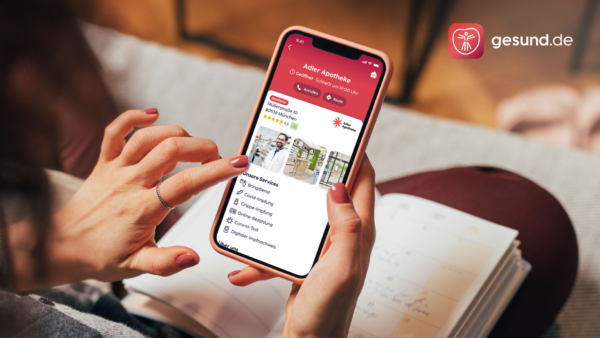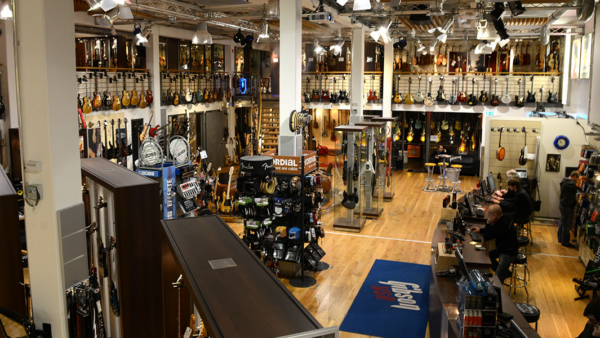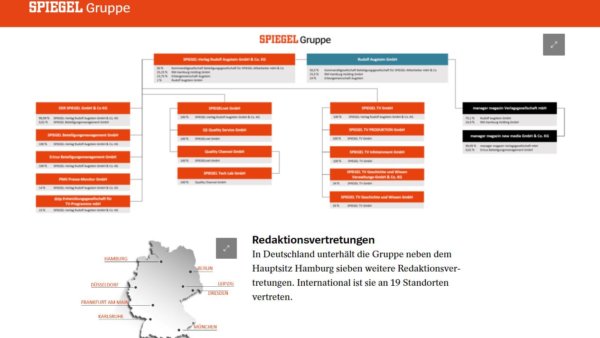 In meinem Beitrag zu Rakuten aus der letzten Woche hatte ich auch ein Video Interview mit Hiroshi Mikitani versteckt. Nun liegt mir endlich die Abschrift vom Video vor, so dass man sich ein besseres Bild machen kann, ohne zwingend das Video anzusehen. Es ist aus meiner Sicht lohnenswert, weil Mikitani etwas ausweichend auf meine eher konkreten Fragen reagiert. Wer ist Hiroshi Mikitani überhaupt?
In meinem Beitrag zu Rakuten aus der letzten Woche hatte ich auch ein Video Interview mit Hiroshi Mikitani versteckt. Nun liegt mir endlich die Abschrift vom Video vor, so dass man sich ein besseres Bild machen kann, ohne zwingend das Video anzusehen. Es ist aus meiner Sicht lohnenswert, weil Mikitani etwas ausweichend auf meine eher konkreten Fragen reagiert. Wer ist Hiroshi Mikitani überhaupt?
Hiroshi Mikitani (47) machte seinen Abschluss an der Harvard-Universität und arbeitet u.a. für die japanische Mizuho Bank, bevor er sich als Berater mit seinem Unternehmen Crimson Group selbstsändig machte. Den Marktplatz rakuten.co.jp startete er 1997, als Japan nur fünf Millionen aktive Internetnutzer zählte („Rakuten“ bedeutet „“Optimismus“). Heute verkauft das virtuelle Einkausfszentrum mit eigens gestalteten Shops mehr als 8 Million Produkte und zählt rund 4.400 aktive Online-Händler. Für den internationalen Ausbau übernahm sein Unternehmen in jüngerer Zeit mit der Play Holdings die britische Nummer vier im Onlinemarkt, Play.com und 2012 80 Prozent der Anteile an der deutschen E-Commerce-Plattform Tradoria. Bereits 2010 hatte Mikitanis Unternehmensgruppe u.a. die US-Plattform Buy.com für 250 Millionen Dollar erworben. Rakuten ist börsennotiert und beschäftigt rund 3.000 Angestellte.
Alexander Graf: The German market is socialized by online vending machines. Our focus as consumers is very price aggressive, yet we love the experience of a boutique. What will the rakuten.de business model look like in the future and could you give us an idea why Germans should buy on the rakuten.de platform?
Of course, the price and efficiency is a very equitable part of the shopping. Well, on top of that, you know, I think the end consumer is ultimately looking for a very unique experience, and people want to communicate. Rakuten is about telling stories and to communicate it, and internet shopping is part of a media, even when it will enable a more rich communication. Once you have experienced this, you will understand it. Unfortunately, I think in Germany, there are not the services, as in Japan,.
Alexander Graf: Not yet…
Not yet. But now, rakuten.de is launching a new platform, on which merchants are able to sell their product in a more unique way and make their web store very different from other sites. And also we need to have a different kind of product as well, not just electronic products.
Alexander Graf: In your book “Marketplace 3.0” you compare this to a fish store, a small business, as oppsed to a supermarket. Today more and more of such small stores are closing down because, although people like the shopping experience, they do not want to pay the price in these smaller stores. As these stores are vanishing, do you think people could start buying more offline or in online retail stores instead of supermarkets because they are missing the experience? Some newspapers are writing about it lately. Do you see such a development in Japan today?
In Japan it’s the same thing, we’ve got what we call a Shutter Street. All these small stores in local towns and cities, they are basically having a very difficult time to compete against big supermarkets. But what is happening is, we are revitalising their business by empowering them with an internet business model. Now all these small shops can sell their products to all over Germany with a very unique experience and at a very competitive pricing. That is what we are trying to do: We are trying to provide this traffic source. The most difficult part for the small or medium size margins, is how to get new customers, as well as how to maintain them, right? And that is why we believe creating this site together with tens of thousands of shops is very important.
Alexander Graf: One of my remaining questions concerns how to create the traffic. In Japan, as you describe in your book, this was done by implementing very powerful tools like chatting or video techniques to entertain customers. Today we see a growing number of networks like Facebook, Pinterest (where you invested money). There is a lot conversation happening outside of the shopping platforms. Do you see this happening in the future to the Rakuten marketplace?
I do not think there is any problem in using such an electronic platform. There are so many kinds of social networks right now, you have Pinterest, you have Facebook, you have Twitter. Now in Japan we have quite a range, we need to be agnostic when it comes to social networks. We need to enable the small to medium size margins businesses to use a social network effectively. For example a video can be stored alone or on a site, or maybe you could use it externally as well. But how can you use it effectively without very advanced knowledge and expertise? This is the important poAG People have got good products and good services that are not necessarily best expressed by text. We are providing the expertise and technology that make it really easy for attractive shops to sell their product online.
Alexander Graf: But if the communication, the customer versus vender interaction happens outside the Rakuten marketplace, for example let on Facebook, Rakuten is becoming a vending machine.
No, I do not think so. The thing is, people have an emotional mode of their behaviour, right? When you are using, Facebook, you are focussing on communicating with your friends. Whereas people who are coming to Rakuten want to buy something. Although Pinterest is a different story, we do affiliated marketing, so we know the conversional rate of each traffic source and the conversional rate of Rakuten is super high, compared to the traffic of social networks. People do not want to be disturbed when they are talking to their friends. Vice versa creating a very unique shopping destination is important. You see this already happening in the United States for example. There you’ve got etsy, fab.com, and of course eBay. They are not the leading vending machines. Therefore I think, a social network is nothing different, for me, than a more efficient E-Mail system. It is a media for us to communicate with the end customer.
Alexander Graf: Interesting point of view. Another question is one regarding your coaching system. You have like 50 PHD’s analysing the data at Rakuten who are filtering out the best in class approaches of how to design your landing page or how to manage advertising efforts. In Germany, we’re recently discussing that if everybody is copying Amazon landing pages the zalando.de SEO texting, no one is going to win because the shopping experience will decrease. When you keep communicating best practises to the venders, how does this match with the approach of the unique shopping experience? In how far does this leave creative space for venders?
The thing is, this is just about analysing the web pages. There is lots of very advanced research and development on this share. Another big share in the shopping experience is the behaviour inside consumer’s license. Some people are price sensitive, some are more brand loyal, and so forth. What I wanted to state in my presentation today is, not everybody, even in Germany, is focused on pricing. Customers are different in many ways. They are very unique, their psychology and behaviour differs a lot. Therefore the visual design of the landing page is very important. First you need to understand what is the most important information for the customer to buy your product. If it is a very simple product, maybe it is not that important to create a beautiful photo. You also need to know what kind of information you want at the top of your page, and where you should layout the shopping button. All those things are very different from one product to another. Also, do you want to have massive amounts of information, or do you want to make it really simple? That is very important to customers, and I am sure that many other companies, including our major competitor, are watching what we do. They are basically copying the concept. But that’s okay,we learn from them as well. But I think we should focus on satisfying the customers, not just trying to differentiate ourselves from our competitors. Trying to maximize the customer satisfaction and the merchants’ satisfaction is the most important thing. So we do not look at what other companies are doing that much, although of course, in my speech today, I talked about how we are different. For day-to-day operations we should try to focus on ourselves though.
Alexander Graf: If you look back, you have been internationalizing your business for the last five years, I think…
Since 2008, yes.
Alexander Graf: And what are your learnings on that journey around the world? Is it possible to transfer the Rakuten business model from Japan to other markets or is it necessary to adapt something like a local Rakuten version in Germany, France, U.K.?
We need to balance standardisation and localisation. We definitely need to have local tests with regard to user experience. Whereas I think the customer service maximisation is very universally applicable. People appreciate good service. Therefore I think in most parts we would be able to transfer the Japanese practices to other countries, but in some cases we need to localize it. Of course, the payment method is different in Germany. Here payment is very different from other countries, so we need to adjust that, and maybe we need to adjust some parts of the design, but I think the major frameworks are applicable locally.
Alexander Graf: Actually, in German commerce business we would like to see an alternative to venders like Amazon, because a lot of venders and even a lot of huge B2C platforms are suffering from the Amazon effect. So we really appreciate your international efforts on the German market.
Please help us.
Alexander Graf: We will definitely try. Thank you very much for your talk.




